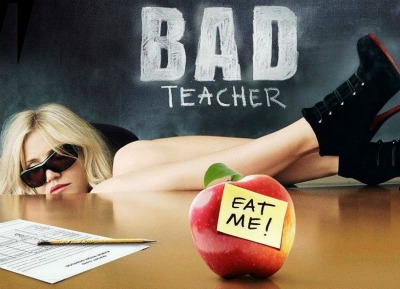Slavery Math Problems in School? The Right Way to Do It

By NICK CHILES
As black parents in Georgia continue to picket outside of a Gwinnett County school calling for the termination of third-grade teachers who used slavery in math word problems, we at MyBrownBaby believe it’s important to get across a crucial point: we are not asking schools to shy away from teaching difficult but vitally important topics like slavery. But there’s a right way and a wrong way to teach kids about America’s dark history.
In case you haven’t been following the controversy, this is the wrong way:
“If Frederick got two beatings each day, how many beatings did he get in one week?”
That was one of the word problems used at the Gwinnett County school. If you’re going to delve into one of the most painful and sordid periods of American history in math class, why not use the opportunity to say something instructive and educational about slaves? It’s so easy to reduce the entire institution of slavery to beatings and runaways, but this shorthand can lead the children to miss an important fact: slaves were people, slaves were families, slaves were little boys and girls and mommies and daddies.
We don’t want to frighten the teaching profession into thinking that broaching any sensitive subject involving black or oppressed peoples is a recipe for disaster—and termination. So as a MyBrownBaby public service, we present a math word problem that we believe properly utilizes this important but painful period in American history. This is our attempt to keep the teaching profession employed but effective. You can thank us later.
Slaves were very creative in taking plants from their native Africa and transforming them into delicious foods that have made their way into the general American diet. Plants like okra not only became the basis for dishes like gumbo, but its leaves were even used by slaves as a medicine to reduce swelling. If Anna, a little girl living in American slavery, fell into a thorn bush and her mother discovered Anna had swelling in six different spots on her body, how many okra leaves would her mother need to find if it took four leaves to reduce the swelling in just one spot?
See what we’re talking about? Creating this question took less than five minutes. Not that deep.
Parents also can’t run away from teaching their children about these topics. Clearly, we can’t rely on the schools to do it for us. Jim Crow. World War II Japanese internment camps. The Civil Rights Movement. Illegal immigration. Do it all. And in the safety of our homes, we can be sure to do it in a sensible and sensitive way. We’d like to recommend a few books to help you out:
A Young People’s History of the United States: Columbus to the War on Terror, by Howard Zinn tells the entire history of America told through the eyes of the oppressed, starting with Columbus’ arrival from the viewpoint of the Arawak Indians.
Lies My Teacher Told Me: Everything Your American History Textbook Got Wrong, by James W. Loewen, revisits the topics covered in American History high school textbooks, except he corrects the myths and distortions.
Harriet Tubman: Conductor on the Underground Railroad, by Ann Petry
Dave the Potter: Artist, Poet, Slave, by Laban Carrick Hill; illustrated by Bryan Collier—A National Book Award finalist teams up with an award-winning illustrator to present a beautiful and inspiring biography of a slave who lived in South Carolina in the 1800s and his extraordinary talent for pottery.
RELATED POSTS:
1. Georgia’s Slavery Math Word Problems Show the Need for Parents to Stay Involved
2. Evil Black Men
3. Mind Control: Raising a Critical Thinker
4. Just Say No To The Stereotyping of African American Parents
Denene Millner
Mom. NY Times bestselling author. Pop culture ninja. Unapologetic lover of shoes, bacon and babies. Nice with the verbs. Founder of the top black parenting website, MyBrownBaby.
- Web |
- More Posts


And this is why I love you!!! Perfection.
Good example and teaches good info on another useful topics.
I’d been thinking about word problems that might focus on how much money slave owners made off of slave’s labor… it could be a complex but very factual problem that compares paying workers the then going wage vs. “leasing” someone’s slaves and just spending enough to keep them alive. Happened all the time– the South was, quite literally, built on slave labor, and the entire country ate and clothed themselves with cheaper food and cotton, etc. for over 100 years due to slave labor.
I’m speechless …